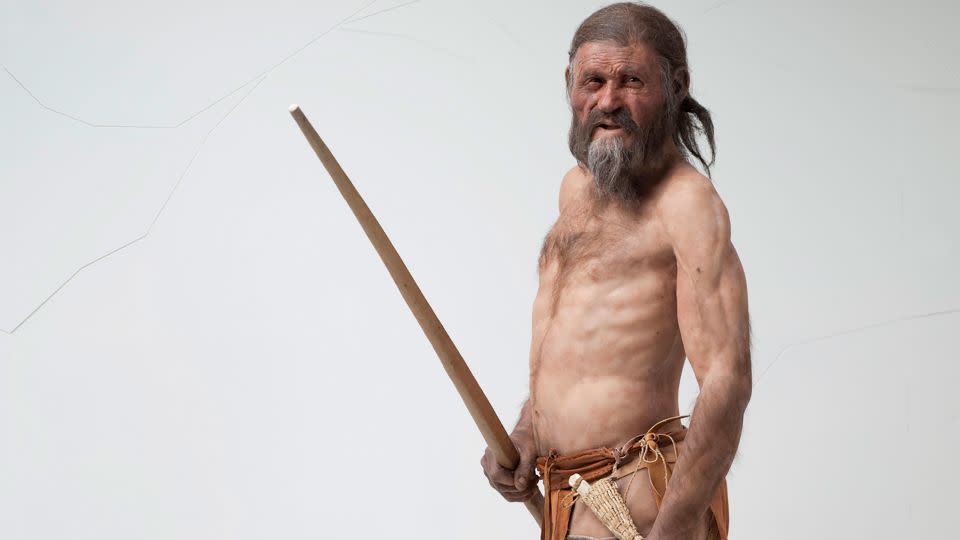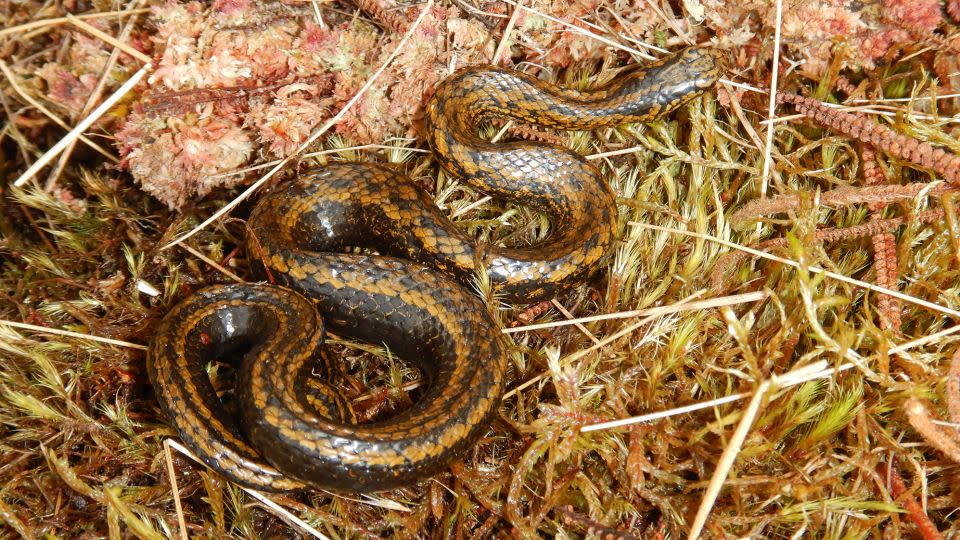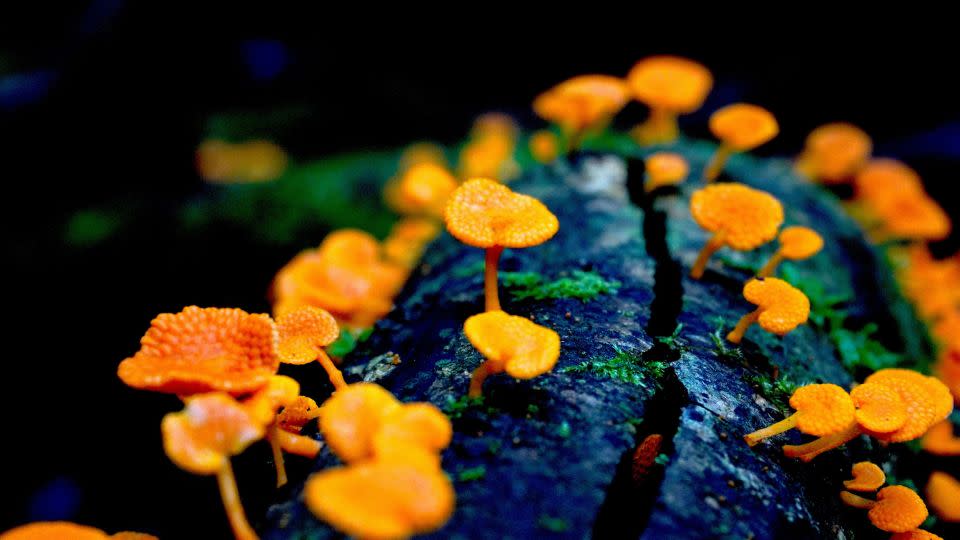Fresh look at Ötzi the Iceman reveals his true appearance and other surprises
Editor’s note: A version of this story appeared in CNN’s Wonder Theory science newsletter. To get it in your inbox, sign up for free here.
Ice and permafrost are thawing rapidly across vast areas of Earth — imperiling glaciers, releasing carbon and, potentially, reawakening ancient pathogens.
The climate crisis is also revealing secrets of a once inaccessible past. Viking arrows, an Iron Age tunic and prehistoric wooden skis are some of the artifacts recovered from melting ice patches. These are exciting finds, but the changing climate could destroy frozen relics before archaeologists even set eyes on them.
A monumental discovery would be an ice mummy, but only one has ever been recovered. This week, learn more about Ötzi the Iceman, a scientific celebrity.
A long time ago

Hikers found the mummified body of Ötzi in a gully high in the Italian Alps in 1991. His frozen remains are perhaps the world’s most closely studied archaeological find, revealing in unprecedented detail what life was like 5,300 years ago.
His stomach contents have yielded information on his last meal and where he came from, while his weapons showed he was right-handed, and his clothes gave a rare look at what ancient people actually wore.
Now, a new analysis of DNA extracted from Ötzi’s pelvis has revealed fresh details, including his true appearance — and it’s not what scientists first thought.
Other worlds
Mars is rotating fast enough to shorten the length of its day, an international team of astronomers has found. The now-retired NASA InSight lander captured the data on the red planet.
The acceleration seems incredibly small — and researchers aren’t quite sure what’s causing it. However, the team suggests it might be due to ice accumulation at the Martian poles or the rise of landmasses after being covered in ice.
When a planet’s mass shifts in this way, it can cause the planet’s spin to accelerate.
Separately, other research scientists said they may have unlocked more clues to another space mystery — how magnetars, the most magnetic objects in the universe, form.
Once upon a planet

If you’re lucky enough to discover a new species, you get to name it. But there are certain rules you have to follow — and you can’t name it after yourself.
Dr. Edgar Lehr, professor of biology at Illinois Wesleyan University, chose to name a yellow-and-brown snake unknown to science with a nod to actor Harrison Ford.
Why Ford? Naming the animal — now known as Tachymenoides harrisonfordi — that Lehr and his colleagues found in Peru’s high-altitude wetlands after a celebrity would raise much-needed awareness, he said. The herpetologist noted that Ford was a perfect fit, in part because of the hate his Indiana Jones character displayed for snakes.
The research team’s perilous journey into the country’s remote Otishi National Park was also worthy of its own action movie — and yielded other discoveries.
Lunar update
NASA’s Artemis program hopes to put humans back on the moon for the first time in more than five decades. An art collection could be waiting for the astronauts once they get there.
A new project called Lunar Codex aims to send up tens of thousands of works from a diverse group of artists, representing almost every country in the world.
The brainchild of physicist and artist Samuel Peralta, the collection will be miniaturized and stored in a format that can be read digitally or with a microscope. The artwork will be split across three launches planned over the next 18 months.
Surprisingly, perhaps, it wouldn’t be the first time human art has landed on the moon.
The wonder

A captivating photo of bright orange fungus growing on deadwood has been crowned winner of the BMC Ecology and Evolution image competition, which explores the intersection between art and science.
The competition allows ecologists, biologists and paleontologists a chance to use their creativity to celebrate their research.
The other winning images include a depiction of an embryonic dinosaur and a photograph of a remotely operated underwater vehicle being deployed in crystal-clear water.
Explorations
Dive into these remarkable stories.
— Two trailblazing teams of scientists in New York and Alabama have made advances in transplanting pig kidneys to humans.
— Metal detectorists working in a field on a Welsh island found a 2,000-year-old gold treasure that may have been used as offerings for the gods, according to the National Museum Wales.
— An object in the shape of a glowing question mark has been spotted deep in space by NASA’s James Webb Space Telescope.
Like what you’ve read? Oh, but there’s more. Sign up here to receive in your inbox the next edition of Wonder Theory, brought to you by CNN Space and Science writers Ashley Strickland and Katie Hunt. They find wonder in planets beyond our solar system and discoveries from the ancient world.
For more CNN news and newsletters create an account at CNN.com
